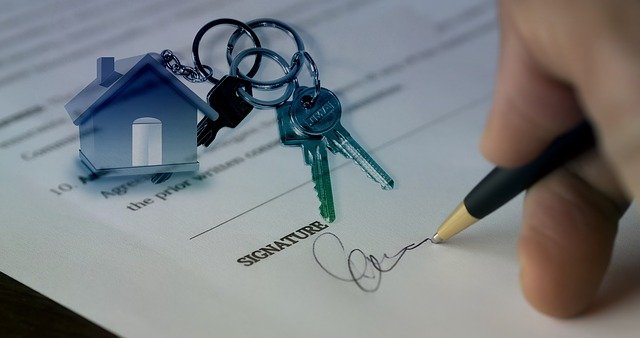How Much A Mortgage Note Is Worth?
Ever wonder how much a mortgage note is worth might once you decide to sell it?
Many factors affect how much a note buyer will pay for your mortgage note. These factors include the value of the property, as well as the payer’s equity, credit score and payment history.
To help you understand how much money you will receive for your payments, here are the factors used to determine the value of your mortgage note:
-
Value of Property
-
Equity from Buyer (Down payment)
-
Property Owner’s Credit Score
-
Payment History on Note
-
Recourse vs. Nonrecourse
-
Other Factors
Value of Property
The value of the property which serves as collateral on the note is one of the first things a note-purchasing company looks at. The current market value of the residential or commercial real estate listed on the note can increase or decrease the note’s market value.
Keep in mind that real estate values can fluctuate over time. The amount listed on the mortgage typically is not the same thing as the current value on the property, or the amount for which the property was last purchased. If you’re not sure of the current value of your property, online resources such as Zillow can provide a rough estimate. During the note-selling process, a more precise quote is given.
A factor which affects property value is the actual type of the property. Typically single family dwellings maintain higher values than other property types like condos or manufactured homes.
Equity from Buyer (Down payment)
The equity the real estate’s owner has in the property factors into the value of the note. This includes the amount of the down payment, as well as payments already received from the property owner.
Not only does this factor determine how much money one would receive, but also it identifies if the seller-financed loan can even be sold at all. The more money you collect as a down payment when you sell a property and create a promissory note, the more likely you will see interest in selling said asset down the road.
The down payment determines how much equity the borrower has in the property, thus determining how secure that loan would be as an investment in an investor’s portfolio.
Property Owner’s Credit Score
The higher the credit score of the property owner, the higher the value of the note. More creditworthiness in the owner means the person purchasing the payments is taking on less risk. Because the buyer of the note is assuming less risk, that money is passed on to the seller.
Ninety percent of the time, credit score comes into play when pricing a note for purchase. It would be wise to review the credit of the person purchasing a property from you, if you plan on creating a mortgage loan to sell to an investor.
Many sellers make the mistake of not pulling credit up front. Months or even years after the loan is created, they found out that the person making payments has credit so bad that the note cannot even be sold at all.
Payment History on Note
In order to receive top dollar for your mortgage loan, at least 6-12 payments must have been collected. We can still buy the loan if there are less than 6 months of payments made, but you may not receive absolute top dollar.
It is also suggested that you collect all payments from the borrower by check, direct deposit or money order. If you plan on not depositing checks or money orders into your bank account, always make photocopies for your records.
Payment history is usually the backbone to a loan sale due to poor borrower credit or lack of equity, or both. Always make copies. It is a good habit to get into if you are acting as a lender on a real estate receivable.
Recourse vs. Nonrecourse
The term “recourse” means the note has someone with whom recourse could be taken in the event the loan is defaulted upon. Though it does not bar it from being saleable, a nonrecourse note has significantly more risk, which degrades its value.
If the payer on the private mortgage is a corporate entity, trust or nonprofit, it helps to have an individual listed as the personal guarantee of the payer. By having a guarantee, it means the note has recourse in the event the entity, trust or nonprofit stops making payments on the loan.
Other Factors That Affect How Much Mortgage Note Is Worth
Interest rate and the length of a loan also help determine the value of the note. A higher interest rate and shorter loan term make for a more valuable note.
Interest Rate – Interest rate is a key mechanism of determining how much money one would receive if/when they sell a real estate note to an investor. The higher the interest rate, the higher the lump sum payment will be when the asset is sold.
Amortization / Pay-Back Period – The longer you stretch the payments over time, the less money you will receive when selling a seller-financed loan. The shorter the payback period, the more money you will receive. It is always recommended that you try to stay between a 10-year and 15-year payback period (or amortization) in order to receive top dollar for the asset you are selling.
Balloon Payments – When selling real estate notes balloon payments are viewed by some investors as a good thing and by others as too risky to buy. If you want to include a balloon payment, you will have to hire a licensed mortgage originator within the state where the property is located.
Though these are the main factors taken into account when a company purchases a mortgage note, it’s a complex situation. The best way to know the exact value of your private mortgage note is to speak with a private investor such as Mikk Sachar.
If you liked this article on How Much A Mortgage Note Is Worth, then you’ll definitely love the following:
-
What Exactly is a Promissory Note?
-
How to Create a Quality Mortgage Note!
-
10 – 10 – 10. The power of 10.


